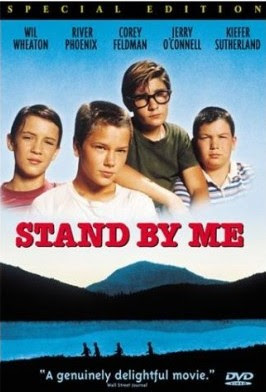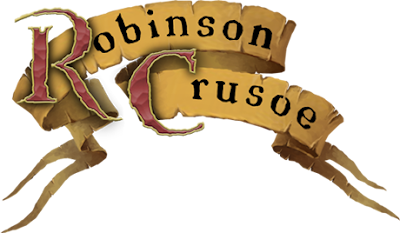Apr 30, 2017
Apr 28, 2017
The Oregon trail
In the
first half of the 19th century thousands of Americans left their
homes in the East and travelled westwards. Some of them were going to California
where gold deposits had been discovered, some others were going to settle in
the Oregon country where they could find fertile land and pleasant climate.
Few
migrants travelled alone. Most went in parties with a guide who knew where to
find water and grass for the animals. The first large party went over the
Oregon trail in 1843. There were 200 families (about 1,000 persons) and they travelled
in 120 covered wagons. They had almost 800 cattle and 700 oxen.
Pioneers
used oxen to carry their wagons because Indians did not know how to use these
animals and therefore they would not steal them. Moreover, oxen would be very
useful to pioneers when they reached Oregon and began farming.
The
migrants moved like an army; they camped; at night arranging their wagons in a
circle to defend themselves and their cattle from the Indians. It was hard to
avoid the Indians as caravans travelled slowly and kicked up enough dust to he
seen for miles.
Some Indian
tribes were very fierce and hated the Whites as, on their way to Oregon, they killed
many buffalo that the Indians lived on.
The Indian
chief Colorow said: Colorow owns this country. Buffalo are Indian cattle. White
man’s cattle eat all grass. Buffalo die, no food. No hunting, no meat, no robes.
Apr 26, 2017
Apr 24, 2017
The English at Home
The English
don’t like to live in busy city streets. They dislike blocks of flats which are
all alike and have no individuality. They prefer to buy or to rent a small
house on the outskirts, away from the noise and the traffic of the town centre.
The typical
suburban house is a two-storey building with six rooms and two gardens: a front
garden full of flowers and a back garden with fruit-trees and vegetables.
Instead of
a number each house has a pretty name which distinguishes it from the house
next door: “May Flowers”, “Red Roses”, “The Cottage”, and the like.
The first
thing an Englishman does with his house is to surround it with a fence or a
hedge in order “to shut out the neighbours” and to preserve his privacy and
freedom. Freedom, in fact, for an Englishman means above all the right to live
his private life, a private life into which he refuses to admit any but his
closest friends.
Behind the
closed door of his “castle” the Englishman enjoys being alone with his family,
looking after his pets, reading his favourite newspaper, smoking his pipe, or
spending a quiet evening sitting in front of the television set.
In summer,
when the weather is nice and sunny, he likes to spend his spare time in the
garden, watering the flowers, cutting the hedge or mowing the lawn. He loves
flowers, and gardening is one of his favourite hobbies.
Sometimes
he has tea in the garden with his wife, while his children play on the grass
with their pets. Pets live in the house and are considered members of the
family. English people are very fond of animals, and you can hardly find any
English family who does not have a dog, a goldfish, a bird or even a pony as a
pet.
Source: R.
Colle – I. Vay, L’esame di inglese, Lattes, an old Italian book 1974.
Apr 22, 2017
Apr 20, 2017
Robinson Crusoe. Focus on the text
Robinson Crusoe (by Daniel Defoe) is probably the most famous adventure
story in the English literature. It tells the story of a man who is shipwrecked
off a desert island where he spends the next 28 years before being rescued. The
story is divided into three parts.
In the first part we are told briefly about Crusoe’s
early life and about how lie runs away from home to sea rather than accept the
life of leisure his father promises him. After a series of adventures Crusoe
finds himself in Brazil where he becomes a plantation owner, an occupation
which he does not really like but which brings him prosperity. From there he
sets off for Africa with some other plantation owners to procure slaves to work
for them. It is on this journey that he is shipwrecked. Whashed ashore on a
desert island, he is the only survivor.
The
second part of the book
is in the form of a journal in which Crusoe writes about life on the island;
how he uses his strength and intelligence to overcome the difficulties of his
situation and eventually become master of the island.
It is in this part that he encounters a ‘savage’, whom he calls Friday and whom
he resolves to convert to Christianity, teaching him
the rudiments of his language and culture, including how to use a gun to
hunt animals for food and later to defend themselves from attack.
The
third and final part of
the book tells of their rescue and of Crusoe’s return to Brazil with Friday as
his servant.
Stylistic features
Like Defoe’s
other novels Robinson Crusoe is
written in the first-person in the form of spiritual
autobiography. As he does with Moll
Flanders, Defoe adds a preface which states ‘The editor believes this thing
to be a just History of fact; neither is there any appearance of fiction in it.’
So we are led to believe that this is the story of a real man, and that Defoe
is merely the editor.
The style of the narrative is very matter of fact. We are given little or no access to
Crusoe’s inner thoughts or feelings, he generally tells us only about his
actions and about what physically happens to him. Occasionally he reflects on
religious questions. Indeed one of the themes of the book is the Puritan idea
of man’s redemption on earth. Another interesting feature is the organisation
of the story: there is no real novelistic plot; rather, Crusoe’s journal merely
recounts the things that happen to him in a diary-like
sequence. In this respect Robinson
Crusoe is formally quite unsophisticated, unlike, for example, the novels
of Henry Fielding.
Robinson Crusoe’s enduring popularity is undoubtedly due to
the fact that, like all classics, in the words of Italo Calvino ‘it has never
finished saying what it has to say.’
Below are
three of the most common interpretations that have been given to the text.
Interpretations. Three lines.
1) The religious allegory. The book has been interpreted
as a religious allegory, a Puritan tract about
man’s redemption from sin. The Puritans had a very down to earth view of
religion. Their view was that man must save himself from original sin on Earth,
regaining the paradise he has lost through his labour and self-reliance.
The island on which Crusoe is shipwrecked is at first an ‘island of despair’.
But gradually, through his virtues of resilience, intelligence and hard work he
gradually transforms it into a paradise of
which he is master. As a Puritan, Crusoe’s religious beliefs are very different
from those of the Roman Catholic religion. He does not ask God for salvation
but relies only upon his own labours.
2) The economic allegory. The book also functions as an allegory of merchant capitalism: the
mini-civilisation, which Crusoe establishes on the island, is similar to the
society from which he comes. After he has arrived on the island he begins to
regard it as his property. He builds himself an
improvised house with a fence round it. He gathers wealth in the form of stocks
of food and supplies. He even gives himself an arduous work routine, although
he has no boss. When he meets the savage, Friday, he employs him as a servant.
In this sense Crusoe embodies the values of the self-made
man. He is like a businessman who, starting from nothing, slowly builds
himself an empire.
3) The imperialist allegory. More recently Robinson Crusoe has been considered as
an allegory of British imperialism because it
attempts to demonstrate the white, Christian Crusoe’s inherent
superiority over the savage Friday, who must be civilised and converted
to Christianity. Robinson sees it as his right to be lord and master of the island
despite the fact that Friday was there before him. His logic follows that of
the British government who saw it as their right to conquer and control most of
Africa and later India. The indigenous inhabitants of these countries were
generally regarded as savages who had to be civilised. In Robinson Crusoe the savage Friday does not really have a voice. He
only learns to speak when Crusoe teaches him English. The master-slave relationship is reminiscent of that
between Prospero and Caliban in Shakespeare’s play The Tempest but Friday,
unlike Caliban, does not learn to curse his master.
Source: Thomson
– Maglioni, Literary Links. Literature in time and space, Cideb, an old Italian
book 2000.
Apr 18, 2017
Apr 16, 2017
Easter
Easter or
Resurrection Sunday is a holiday celebrating the resurrection of Jesus Christ
after his crucifixion as is describing in the Holy Bible.
It
represents the culmination of the Passion of Christ, preceded by Lent (a
forty-day period of prayer and fasting.
The whole
week before Easter is named Holy Week.
In
proximity of this holiday the cuisine is extreme, but the results are
spectacular and impeccable taste. Native of Puglia is the scarcella, an Easter cake baked and variously decorated on which
lies a boiled egg or small chocolate eggs.
In the
group of typically Italian Easter cakes it places the dove, whose mixture lies
inside a mold and decorate with almonds and sugar grains.
Apr 14, 2017
Apr 12, 2017
Stand by me soundtrack – Ben E. King
And the land is dark
And the moon is the only light we'll see
No I won't be afraid, no I won't be afraid
Just as long as you stand, stand by me
And darlin', darlin', stand by me,
oh now now
stand by me
Stand by me, stand by me
If the sky that we look upon
Should tumble and fall
And the mountains should crumble to the sea
I won't cry, I won't cry, no I won't shed a
tear
Just as long as you stand, stand by me
And darlin', darlin', stand by
me, oh stand by me
Stand by me, stand by me, stand by me-e, yeah
Whenever you're in trouble won't you stand by
me,
oh now now stand by me
Oh stand by me, stand by me, stand by me
Darlin', darlin', stand by me-e, stand by me
Oh stand by me, stand by me, stand by me
Apr 10, 2017
Apr 8, 2017
Robinson Crusoe
Robinson
Crusoe was a sailor. During one of his voyages he was shipwrecked in a storm
and all his companions were drowned.
He reached
a desert island and, before the ship sank, he succeeded in bringing ashore some
tools, guns, food and also a cat and a dog. After living alone for many years,
one day he saw some canoes approaching the island. He hid behind a bush and
from there, shortly after, he saw some savages landing. They had some captives
with them and Robinson realized that they were going to kill and eat them. Al of
a sudden one of the captives ran away. Two cannibals pursued him and were going
to catch him but Robinson fired at them and saved the captive. As all this
happened on a Friday, Robinson named the savage he had saved Friday and took him as his servant.
Robinson taught Friday to speak English and baptized him.
The two men
lived together on the island until a ship anchored off shore. The crew had
mutinied and were going to kill their captain. Robinson and Friday saved him and
so they were able to leave the island.
Apr 6, 2017
Apr 4, 2017
“Will Hunting” Monologue, Robin Williams
Sean and Will sit
in the bleachers at the mostly empty park. They look out over a small pond, in
which a group of schoolchildren on a field trip ride the famous Swan Boats.
WILL: So what's with this place? You have a swan
fetish? Is this something you'd like to talk about?
SEAN: I was thinking about what you said to me the
other day, about my painting. I stayed up half the night thinking about it and
then something occurred to me and I fell into a deep peaceful sleep and haven't
thought about you since. You know what occurred to me?
WILL: No.
SEAN: You're just a boy. You don't have the faintest
idea what you're talking about.
WILL: Why thank you.
SEAN: You've never been out of Boston.
WILL: No.
SEAN: So if I asked you about art you could give me
the skinny on every art book ever written...Michelangelo? You know a lot about
him I bet. Life's work, criticisms, political aspirations. But you couldn't
tell me what it smells like in the Sistine Chapel. You've never stood there and
looked up at that beautiful ceiling. And if I asked you about women I'm sure
you could give me a syllabus of your personal favorites, and maybe you've been
laid a few times too. But you couldn't tell me how it feels to wake up next to
a woman and be truly happy. If I asked you about war you could refer me to a
bevy of fictional and non-fictional material, but you've never been in one. You've never held your best friend's
head in your lap and watched him draw his last breath, looking to you for help.
And if I asked you about love I'd get a sonnet, but you've never looked at a
woman and been truly vulnerable. Known that someone could kill you with a look.
That someone could rescue you from grief. That God had put an angel on Earth
just for you. And you wouldn't know how it felt to be her angel. To have the
love be there for her forever. Through anything, through cancer. You wouldn't
know about sleeping sitting up in a hospital room for two months holding her
hand and not leaving because the doctors could see in your eyes that the term
"visiting hours" didn't apply to you. And you wouldn't know about
real loss, because that only occurs when you lose something you love more than
yourself, and you've never dared to love anything that much. I look at you and
I don't see an intelligent confident man, I don't see a peer, and I don't see
my equal. I see a boy. Nobody could possibly understand you, right Will? Yet
you presume to know so much about me because of a painting you saw. You must
know everything about me. You're an orphan, right?
Will nods quietly.
SEAN: (cont'd) Do you think I would presume to know
the first thing about who you are because I read "Oliver Twist?" And
I don't buy the argument that you don't want to be here, because I think you
like all the attention you're getting. Personally, I don't care. There's
nothing you can tell me that I can't read somewhere else. Unless we talk about
your life. But you won't do that. Maybe you're afraid of what you might say.
Sean stands,
SEAN: (cont'd) It's up to you.
And walks away.
Subscribe to:
Comments (Atom)



















